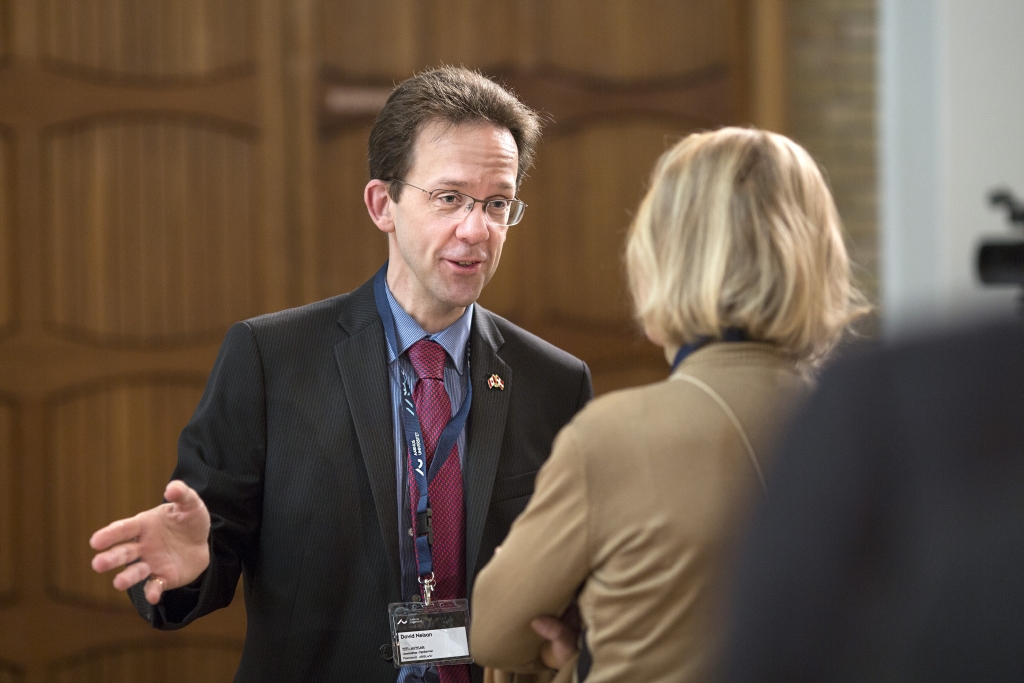Seven Questions for the New Chief Economic Advisor
Michael Svarer, professor of economics at Aarhus BSS, has just been appointed president of the four-member chairmanship of the Economic Council. We caught up with him shortly before lunch on a busy day, and had a chance to ask him about his expectations for his new job. Current issues, including the integration of immigrants into the Danish economy, will be high on the agenda, he said.
What do you hope to achieve as chief economic advisor?
"Based on the legislation that governs our work, it’s up to the Economic Council to monitor the Danish economy, including both short-term and long-term trends. We are also supposed to look at the interplay between the economy and the environment, and in addition it’s our responsibility to ensure that the fiscal policies are in sync with national fiscal objectives. It’s my hope that my colleagues and I can fulfil the duty that we have been asked to carry out."
Your research has focused very much on labour and family economics. Will this influence your future work in the council?
"It will, especially for the part of my research dealing with labour economics. A lot of what we do in the council is related to labour market policy. What do you do in order to introduce more people into the labour market? How do you organise subsidies in order to support employment and growth? Much of our work is based on issues related to the labour economics, and as a result, the research I have undertaken is rather relevant for the work in the Economic Council."
It’s been said that as the president of the Economic Council, you expose yourself to significant public criticism. Are you prepared for that?
"Compared with working as a researcher, you have to stick your neck further out in the Economic Council. We are required to make public statements about current policies, and sometimes we also have to take a position. Of course, this means that when you say something, you expose yourself more easily to criticism than if you are a researcher. But I’m prepared to defend my positions with the available economic arguments, and of course I aim to do so in an enlightened fashion."
According to Torben Tranæs, who has just been appointed as new member of the chairmanship, the debate about refugees will figure prominently in the future. Do you agree?
"One of the biggest challenges facing the Danish economy, in terms of not only public finances but also the labour market, is the question of integrating refugees and immigrants into the labour market and society more generally. Obviously, a lot of this has to do with economic policy tools and the way the labour market is organised, so I agree that it will be a big part of our work in the future."
Will it be a bigger part than in the past?
"You might say that current economic issues in general are a big part of our work, and of course over the past couple of years, the debate about refugees and immigrants has taken on a new urgency. Evidently we have a high labour participation rate in Denmark, but we still need to introduce more immigrants and refugees into the labour market. That also goes for the educational system. It’s an obvious task for us to address the problems and challenges in the Danish economy, and since integration of refugees and immigrants on the labour market is one of the big current issues, it will be on the agenda."
What do you see as the biggest challenge in your new job?
"The Council has existed for 52 years, and the challenge will be to continue to provide our services to a high professional standard and ensure that our work is relevant and contributes to the economic and political debate. The challenge will be to provide good analyses that are helpful for the decision-makers."
Do you plan to do anything differently from your predecessor?
"Basically, no. Hans Jørgen Whitta-Jacobsen has done a superb job, and of course I hope we can continue to ensure that the Council maintain a high level of credibility with the public. So basically, there won’t be any changes."
